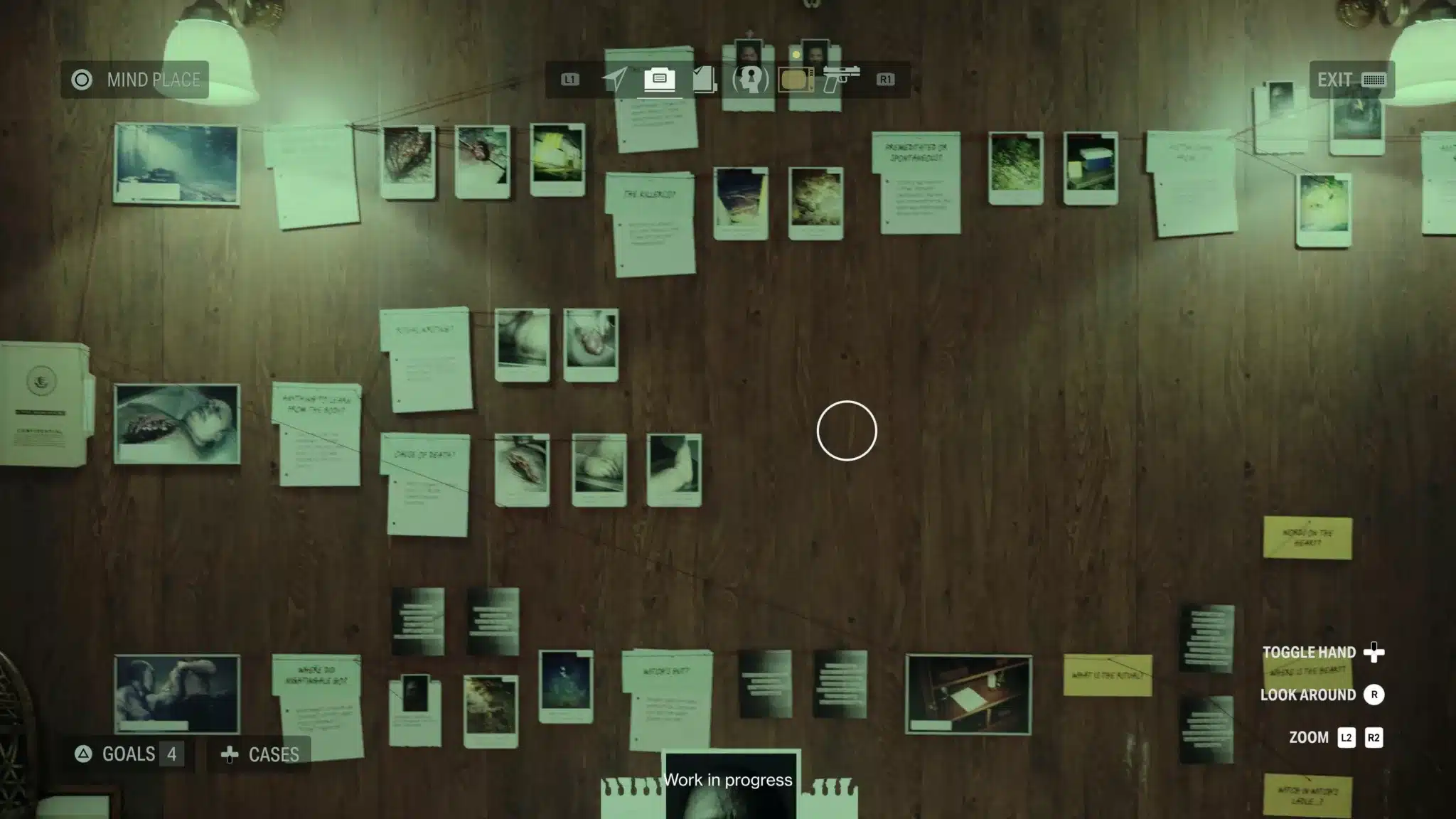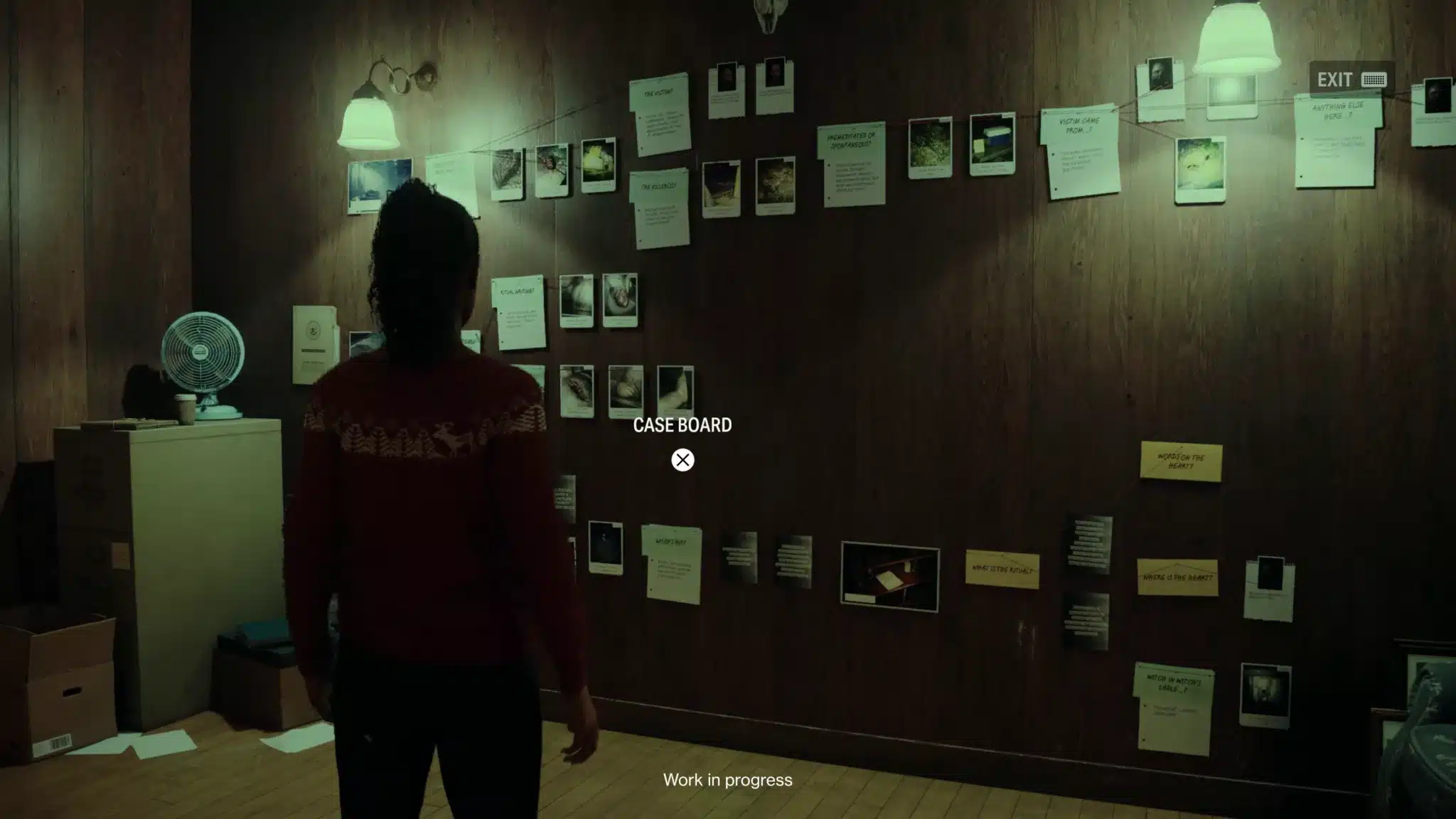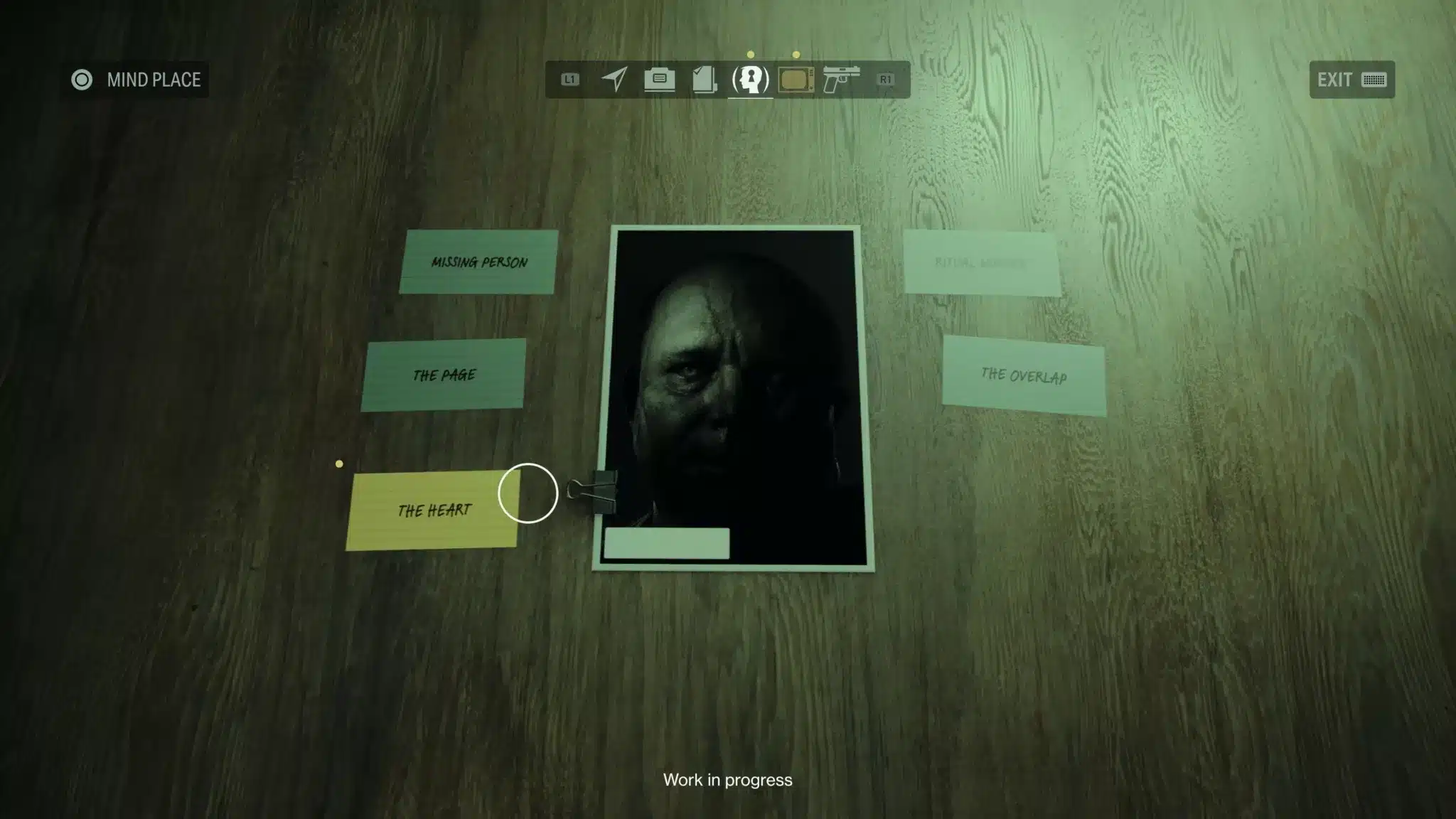We were on patrol with Max Payne in a creepy forest. What we saw there scared us to the core – and at the same time gave us immense hope for Alan Wake 2.
It’s the rattling of the shutters that impresses me the most.
A storm comes up and the idyllic forest around Cauldron Lake turns more and more into a world of horror, with shadows playing with one’s imagination and terrifying noises.
The sun has just set. Where just a moment ago the last rays bathed the valley in a soft golden light, darkness now reigns as I descend deeper, following a winding path in the role of FBI agent Saga Andersen. Ahead of me walks Saga’s colleague Alex Casey, whose face is shared by Max Payne and Remedy’s Creative Director Sam Lake.
This hike past swaying vegetation, between increasingly oppressive tree trunks and along ivy-covered abandoned wooden huts is like descending into a living darkness, a place of darkness, a kind of limbo. It’s the first thing I see and hear of Alan Wake 2 (the shutters!), and it’s great Have a listen:
Table of Contents
13 years later, everything is the same
The version I got to see on a PS5 devkit was about to reach beta stage, according to developers. What we saw was the second chapter of the story, which takes place seamlessly 13 years after Alan Wake’s disappearance. In the sleepy town of Bright Falls, the body of the FBI agent Robert Nightingale, known from the predecessor, turns up and sets a chain of events in motion that unleashes a sleeping evil anew.
With the new protagonist Saga, Remedy wants to make it easier for those players to get started who did not play Alan Wake back then. You take her on at the beginning, then eventually there comes a point where you can switch into the skin of the eponymous writer. Their two stories are separate yet connected; the player is to decide when they prefer to continue which story, but must have played through both by the end.
There is no co-op mode in Alan Wake 2 or the possibility to experience a mission from two different points of view – Alan’s and Saga’s experiences take place on different levels of reality, even if the two meet from time to time, as at the end of the demo. There are also supposed to be gameplay differences between the two characters, but these are still unclear.
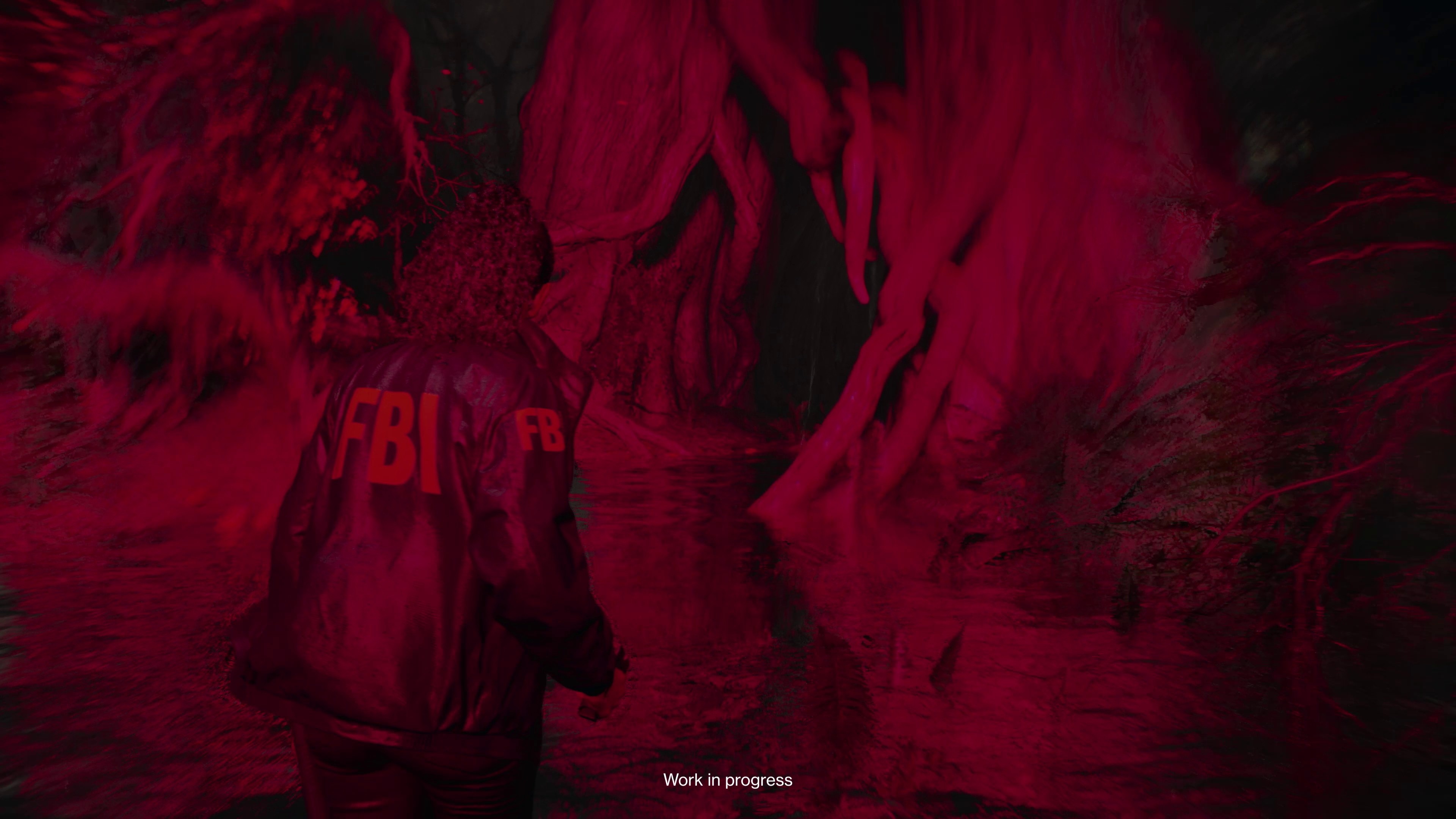
Sherlock sends his regards
In Saga’s role, I can withdraw into her head at any time during the game: Without loading time, I end up in her “Mindplace”, a log cabin that represents the FBI agent’s mind. Those who remember the “Mind Palace” from the BBC show “Sherlock” will be familiar with the concept.
Here you can not only call up a map of the current level (three of which are large hub areas with alternative paths), but also hang the clues, photos and manuscript pages you have collected on a wall. This automatically creates connections and conclusions that advance the plot as well as unlock new objectives in the game.
Unlike in Frogwares’ Sherlock Holmes adventures, you won’t be allowed to draw the wrong conclusions – but it’s very possible to miss details. Finally, Saga also has the possibility to put herself in the shoes of certain people in her head as a profiler. In a kind of vision, she can guess what Robert Nightingale, for example, was thinking before he died.
To all appearances, there is far less freedom of choice and demanding detective work here than it seems at first glance; instead, the Mindplace is primarily a construct to drive the ultimately linear story forward. Albeit undoubtedly a very atmospheric one.
More film than game?
No question, the atmosphere and cinematic flair of Alan Wake 2 are the game’s greatest strengths. Remedy has digitised real actors to embody the characters, the English voice acting is of a high standard and the pacing in the featured section plays very skilfully with our expectation to build tension and dread.
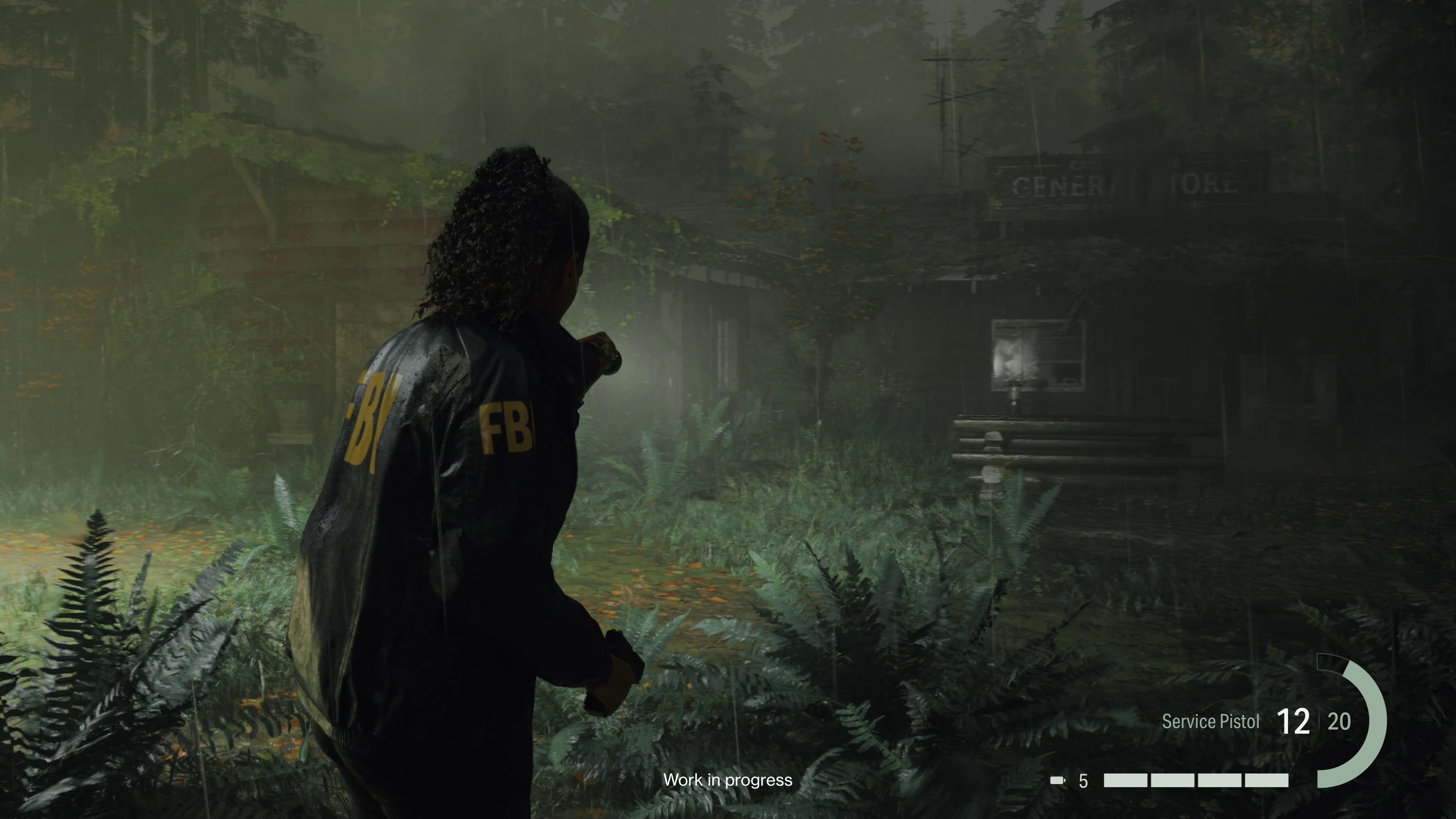
When community manager Vida Starčević tells us that the developers “prefer to rely on atmosphere rather than shock effects”, we are therefore inclined to believe her – and then a second later there’s a jumpscare.
Alan Wake 2 is a horror game and repeatedly relies on scripted shock moments to get the player’s pulse racing. This ranges from snippets of video fading in with sound distortion for split seconds to the attacker breaking through the wall from the last trailer:
Positively, I always notice the acoustics in the demo. But also the graphics (an improved version of the engine known from Quantum Break and Control is used) meet the highest standards. Especially the play with light and shadow is very successful and Saga’s hair looks almost deceptively real.
The rain that starts during the demo soaks the protagonist’s clothes and lovely details such as a reloading animation of the sawn-off shotgun (which then actually hangs on a loop over Saga’s shoulder) that is elaborated down to the smallest detail are representative of the great work of the graphic designers at Remedy.
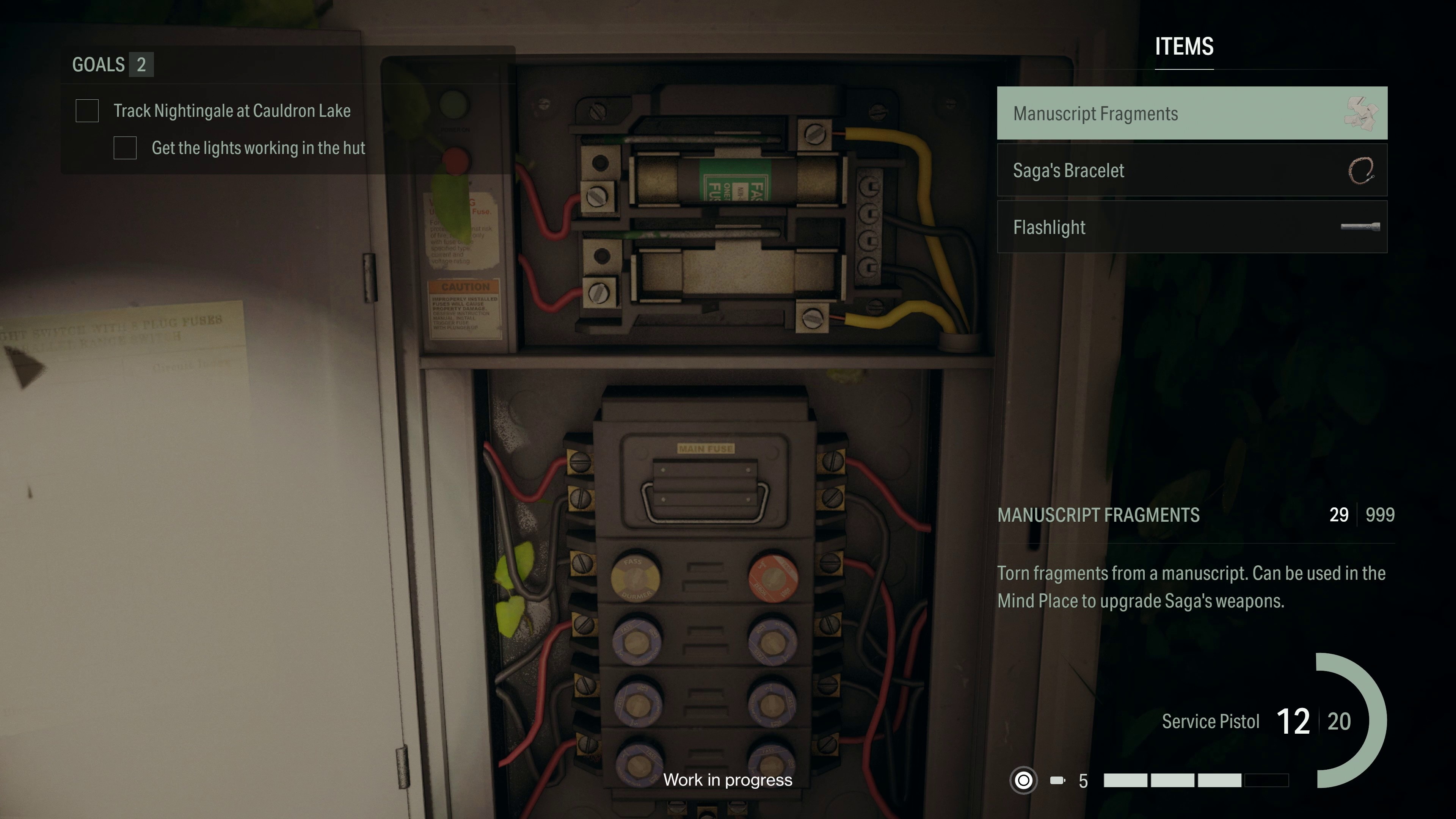
The important thing is on the pitch
But Alan wakes problems as a game reached deeper than the surface in 2010. The gameplay ran out of steam as the game progressed. How Remedy plans to avoid the same mistake with Alan Wake 2 is still not entirely clear to me, even after the presentation.
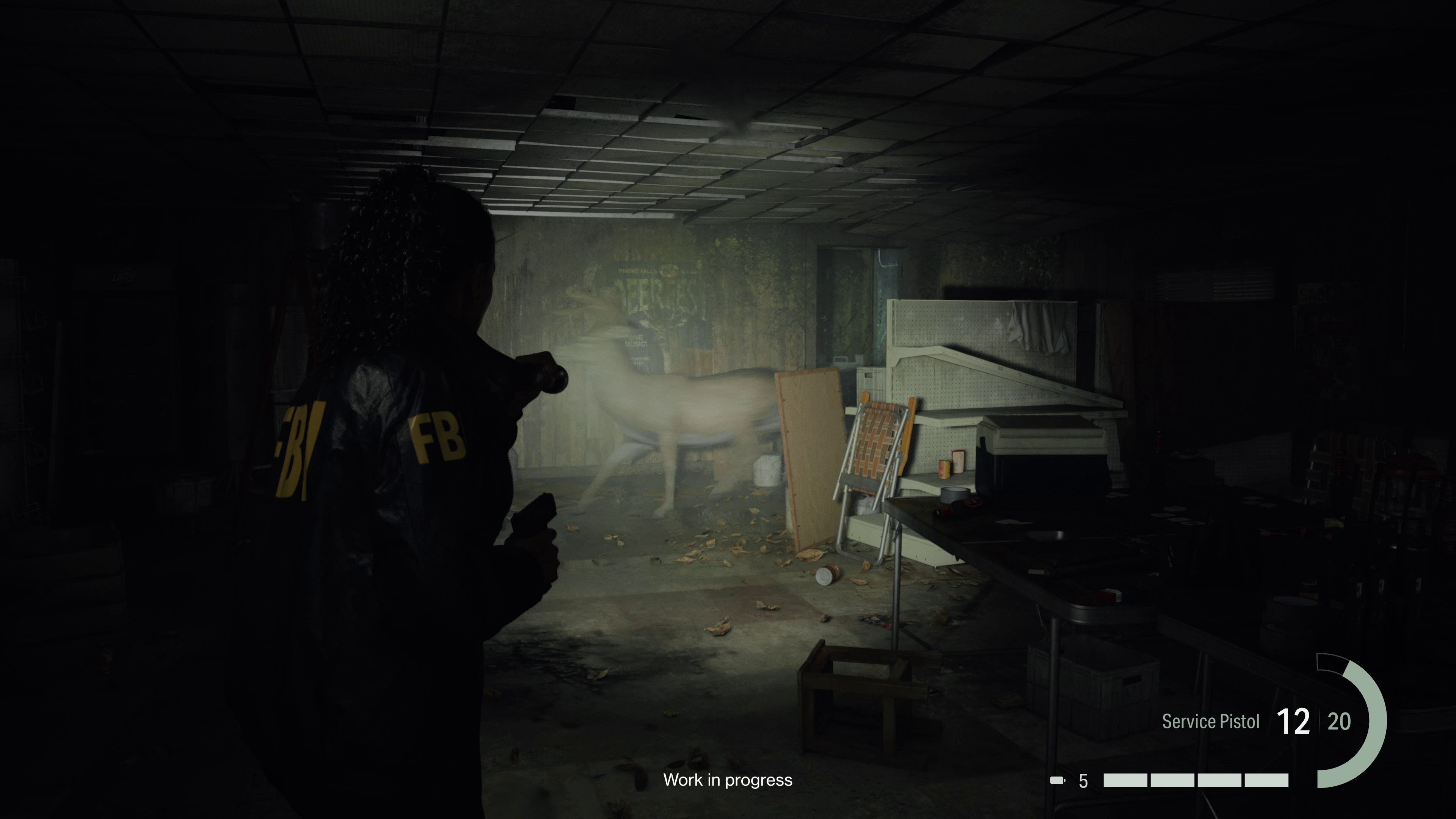
Still, at least in the section I played, you move through the levels on linear paths, interacting with the environment where an indicator invites you to interact, collecting items and shooting at hillbillies and other adversaries consumed by shadows. At one point I get to exchange a few words with Max Payne, er … Aley Casey, but decisions are not possible here either.
Nevertheless, there are a few innovations:
- Items move into a gridded inventory with limited space; as in Resident Evil or Deus Ex, larger weapons take up more storage space.
- The only place to store items is at thermos flasks in safehouses lit by light. Here you can also put items you don’t need in a box or switch between Saga and Alan.
- You will now have to treat your wounds yourself, with limited painkillers and first aid kits. You can find supplies in the game world.
- There are no longer any vehicle sequences.
- Weapons can be upgraded in the Mindplace.
- In combat, you can now dodge on the ground when enemies have knocked you down.
Battles should feel more strategic, including the more frequent use of projectiles such as flashbangs, flares and gas tanks. We didn’t see any of this in the demo, Saga took out the enemies like Alan once did: first clear the darkness around the enemy with the torch and expose a weak point, then shoot it with the pistol and shotgun.
The game repeated itself at the boss enemy of the level, but the shotgun tore larger holes in the body of the enemy for the first time. The scene was crowned by a simple quick-time event. Batteries for the torch and ammunition are only available in limited quantities, so perhaps Alan Wake 2 will emphasise item management even more in the course of the game, which is also an important part of other survival horror games such as Resident Evil.
Alan Wake 2 will be released for PC, PlayStation 5 and Xbox Series X/S on 17 October. For the time being, the game can only be purchased on PC from the Epic Games Store. Remedy will not be releasing a physical disc version.
Editor’s verdict
I found Alan Wake fascinating at the time, but was never the biggest fan. But I’m really in the mood for Alan Wake 2 after the demo! Remedy picked the perfect level for the presentation, that slow change from a balmy summer evening to a storm in dark night was immensely atmospheric. The way the wind got stronger and stronger and the vegetation whipped realistically in front of it, that didn’t have to hide from graphic bangers like Naughty Dog’s The Last of Us.
I have little doubt that Alan Wake 2 will work as a mystery thriller and horror game (that sound!). When it comes to gameplay, however, I’m a little more cautious; there was too little to see of the fights in particular. Annoying, because it was precisely those that degenerated into pure routine after a while in the predecessor. The constant bundling of beams with Saga’s torch could get on your nerves just as quickly as in the predecessor, if the developers hadn’t thought of a few clever twists here. But if you take the quality of the demo as a yardstick, then again I’m confident that Remedy still has a surprise or two in store.


